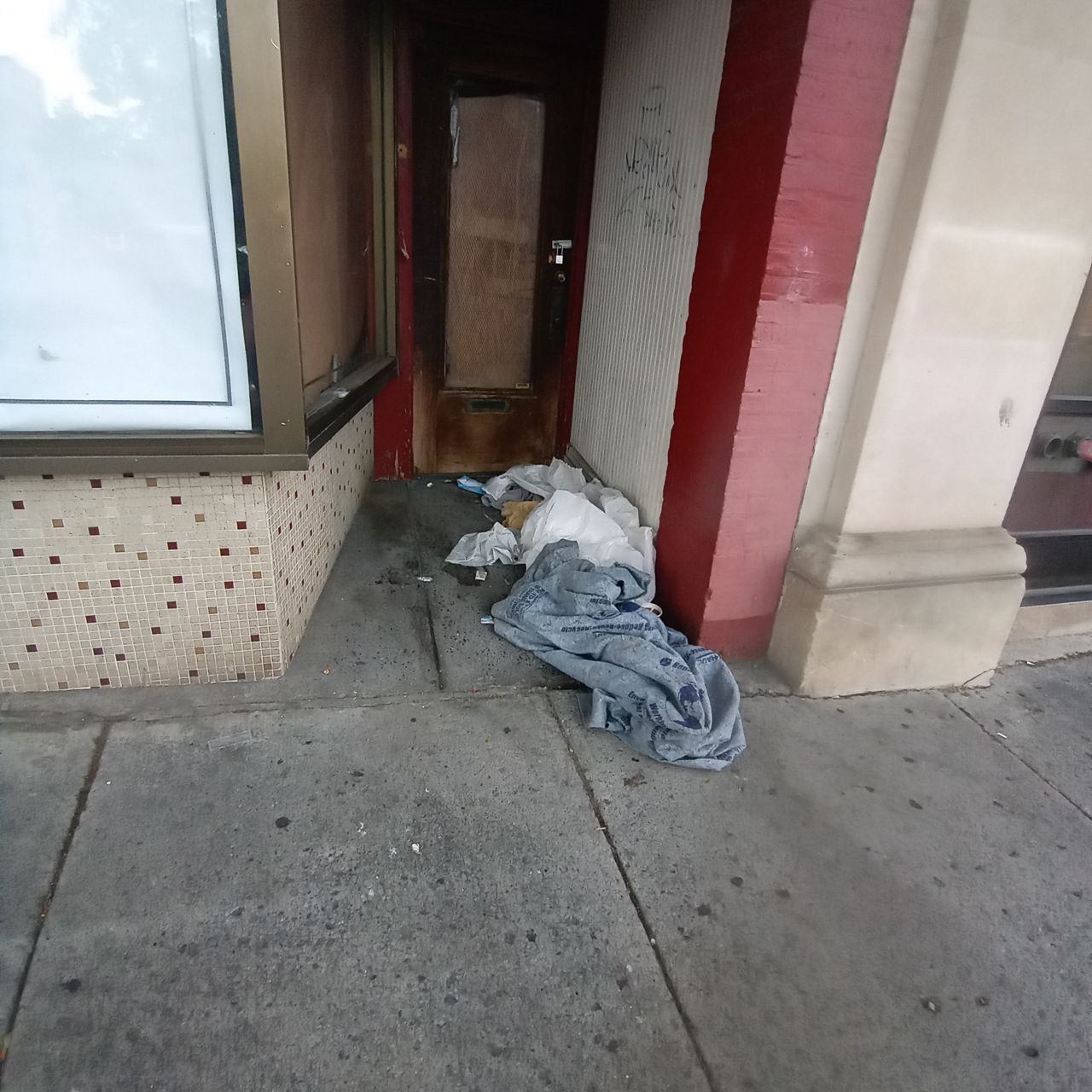A substance abuse clinic that some say has played a significant role in their recovery from addiction is creating an unsafe environment for residents and shop owners in the Central Avenue business district of Albany and should be relocated, city officials and some business owners say.
Camino Nuevo, a six-year-old methadone clinic, shares the Hauf Building with other organizations at 175 Central Ave., in downtown Albany.
One concern heard repeatedly from business owners, residents, and city officials, though, is the clinic's presence contributes to drugs and crime in the area.
Luis Williams, owner of the nearby Celebrities Barbershop on Central Avenue, blames the facility for decreased foot traffic in the area.

“There’s a lot of addiction, but I just feel like there’s a way and a place that we have to handle it as a community,” Williams said. “I think treatment facilities shouldn’t be in an inner city. I think we need to put that somewhere out in the suburbs. Basically, away from everybody. Don’t make it so easy for people who do have addictions to leave a clinic and go to the street and find whatever it is they’re looking for.”
The addiction recovery center contributes to the problems, he said.
“These taxis bring these people that don’t even live here, who aren’t even from our community, but bring them here to go get the treatment that they need for their addiction, but at the end of the day, now you’re flooding the community with more of a problem,” Williams said.

He said recently, one of his clients found a used needle outside the barbershop, word got out and he’s been losing business.
“Most likely, if I see the stuff that goes on around here, I’m not going to want to bring my child here, and that’s how it would affect people like myself as a barber, who has clients coming from all over to get a haircut,” Williams said.
Money aside, he said it comes down to safety. “The main goal is to keep the people safe and keep the community safe,” Williams said.
Albany Mayor Kathy Sheehan is demanding something be done. She says her office has received complaints about the clinic from other business owners, residents and school leaders in the area.
City officials want the clinic moved.
“It’s heartbreaking to see businesses who were around for years, they can’t make it because quality of life,” Sheehan said. She said the area was never the right location for the facility, and problems in the neighborhood have increased as it has expanded.
Camino Nuevo in Albany is one of 96 opioid treatment programs across the state. There are five treatment clinics in the 10-county extended Capital Region area; three in the Hudson Valley; three in Buffalo; two in Rochester; and two in Syracuse, according to the state Office of Addiction Services and Supports (OASAS).
OASAS supports about 234,000 individuals a year with treatment for substance use disorders or gambling problems, including 50,000 people that are served annually in OTP facilities.
In October, Gov. Kathy Hochul signed five new bills addressing the opioid epidemic, including one designed to increase access to M.A.T. — or medication assisted treatment.
Camino Nuevo operates under state and federal guidelines, and its location was chosen in 2015 by Acacia Network’s Camino Nuevo and approved by the state Office of Addiction Services and the city of Albany, based on a needs analysis conducted at the time.
As the needs for treatment grew, Camino Nuevo looked to expand from its original capacity and filed an application to do so with OASAS, which was approved in December 2016.

Unlike a bar or restaurant that can be deemed a nuisance property, Camino Nuevo is a clinic that provides M.A.T. for those struggling with addiction. But the mayor has been building a case with complaints dating back to 2017, hoping the state would agree to move the facility.
The area is home to schools, but is now known for drug use, and needles can be seen strewn on the ground according to an Albany Police Department officer familiar with the area. There's no precise way to attribute or say with certainty that drug paraphernalia is from the clinic.
“This is not a model that works," Sheehan said. "They need to be on a padded site, with ingress and egress control, where there isn’t the ability to wander into a neighborhood, into a business district to be preyed upon and to access things that, again these are individuals with substance issues and they are being let out into an area where, it’s like if somebody had a gambling issue and it’s like, here you go, I’m letting you out into the casino.”
The mayor says there have been police operations in the past, but she doesn't believe the best way to treat addiction is to make arrests.
Sheehan pointed to the Whitney Young Health Methadone Clinic on DeWitt Street as a location without businesses and schools. The facility also has a parking lot.
She, Common Council President Cory Ellis and Central Avenue BID Director Anthony Capece say downtown Albany is not an appropriate location for a methadone clinic.
'A big piece of my recovery'
But Casey Hayner, a recovering addict, said there are some misconceptions about Camino Nuevo.
She hopes sharing her story will help address some of the stigma surrounding the clinic, and encourage others to seek treatment.
“He is very intelligent, too intelligent for his own good. He loves chihuahuas and animals,” Hayner said about her 10-year-old son Tory. “He’s my biggest cheerleader, by far. He is. And he lets me know that all the time.”
It’s a close bond for which she was willing to fight. Six years ago, Hayner was in the depths of an opiate addiction.
“My mom and dad didn’t think I was going to make it through that summer," Hayner said. "I’m surprised I did, as well. I was in a very fragile place with not just my drug use, but my mental health.”
After receiving treatment at an in-patient facility, Hayner struggled to stay sober, until she found Camino Nuevo more than five years ago. It offers medication-assisted treatment.
“Methadone and Suboxone and other forms of M.A.T. are really necessary for a lot of people, that piece of their recovery," Hayner said. "It’s not some magic cure-all, but it definitely is a big piece of my recovery, and I know a lot of my peers', as well.”
The program demanded a huge commitment from her entire family.
Hayner lives in Saratoga County. At first, she was required to take the medication in front of her nurses six days a week at the Albany clinic. Her father retired early to take care of Tory on the long days Hayner traveled for treatment.
“It’s a combination of counselors here that have helped me through telling their stories, self-disclosure and showing us hope,” Hayner said.
For Hayner, therapy wasn't enough. But the combination of therapy, along with medication, is what gave her back her life and has sustained her recovery.
M.A.T. helps normalize brain chemistry and body functions when individuals come off opiates. It also blocks any euphoric effects caused by opiates if a patient relapses. On-site physicians order the medications, usually methadone or Suboxone, and nurses observe as patients take the medication.
Hayner said she and other patients have to "earn" take-home privileges for the medication over time. The clinic says it doesn't send people in recovery home with prescribed medications to help treat addiction because they can be misused and abused.
Camino Nuevo representatives said M.A.T. is effective. They said the Central Avenue location is the right place for the facility, and they don't intend to move. They say the reasons people want them out are why the services are needed there.
They said the patients they serve come mostly from Albany County, which proves there is a need.
According to the facility, 37% of its patients are Albany County residents; 13% are from Rensselaer County; 12% are from Schenectady County; and eight percent are from Saratoga County.
The senior administrator of addiction services at Camino Nuevo said the organization faces backlash at every location, but those locations are chosen because there is a need. She said the clinic is happy to work with the community on any issues it has.
“We do regular drug toxicology testing on all of our clients and as I mentioned in order to get some sort of take home medication there has to be some sort of stability and obviously abstinence in drug use,” said Elizabeth Smith, senior administrator of addiction services in the upstate New York Region.
If a patient fails a drug test or is caught selling or misusing their medication, they would lose those take-home privileges, putting them back to step one, where they would have to go to the clinic.
For Hayner, hope made way for a healthy relationship with Tory.
“He knows about my recovery," she said. "I’m very transparent because he remembers when mommy wasn’t OK, unfortunately, so now I’m able to show him mommy got better.”
Getting better was just the beginning. Hayner now advocates with VOCAL-NY for addiction resources. She’s on the patient advisory board at Camino Nuevo, became a certified recovery peer advocate and helps others at the clinic.
Hayner said she would keep working on her recovery and credits Camino Nuevo for staying alive. She says she’s doing it all for Tory.
“I wasn’t able to go into a sober living facility because I had a son with autism, and it wasn’t a conducive environment for him," she said. "I want to make a conducive environment for parents with children with disabilities that aren’t able to go to sober living facilities, and I will do that one day. I will.”



